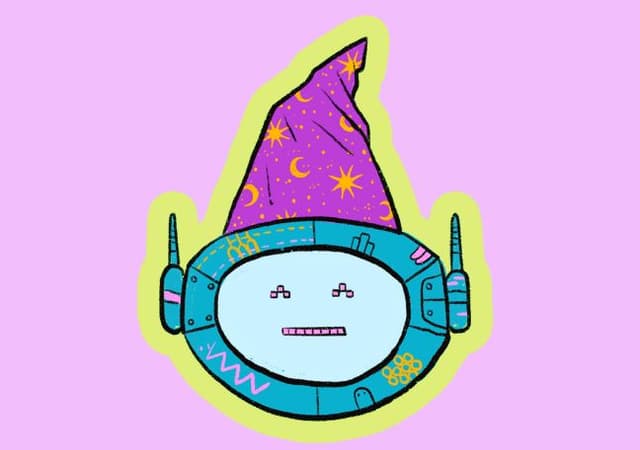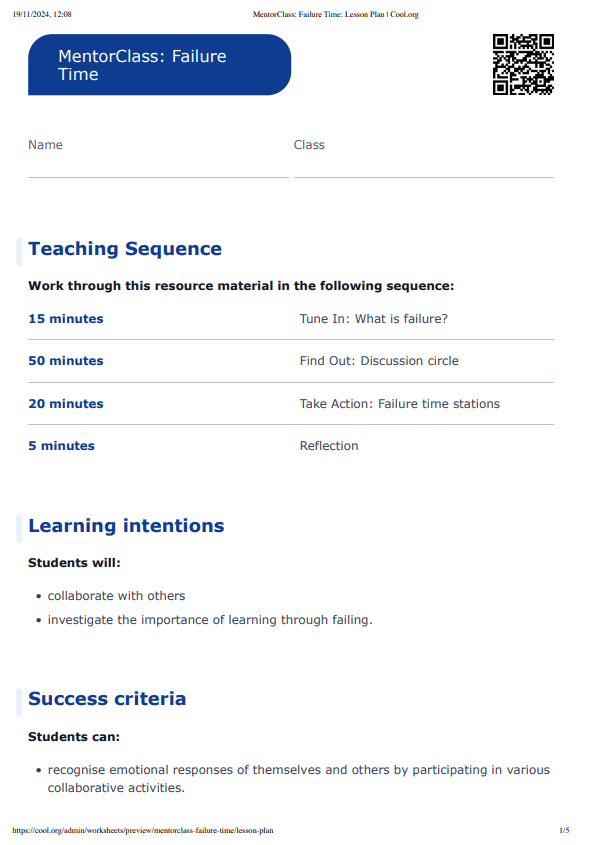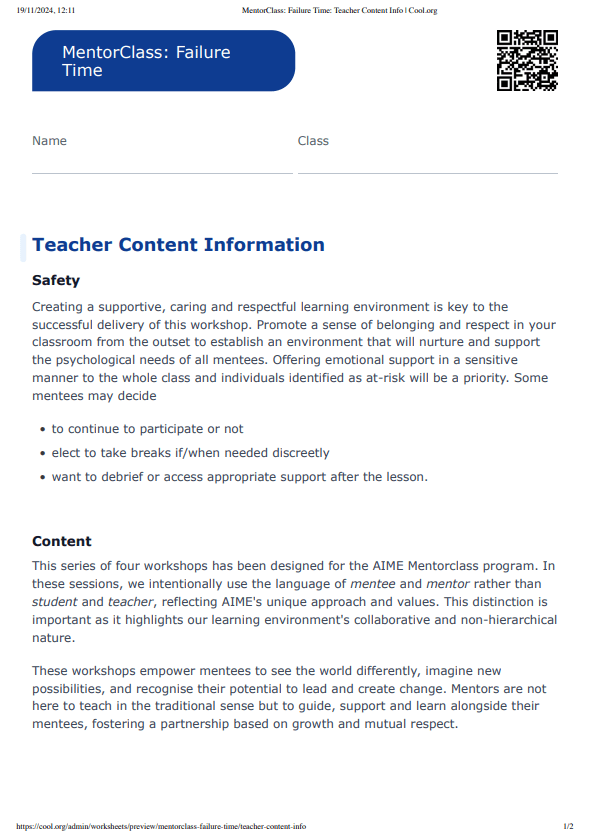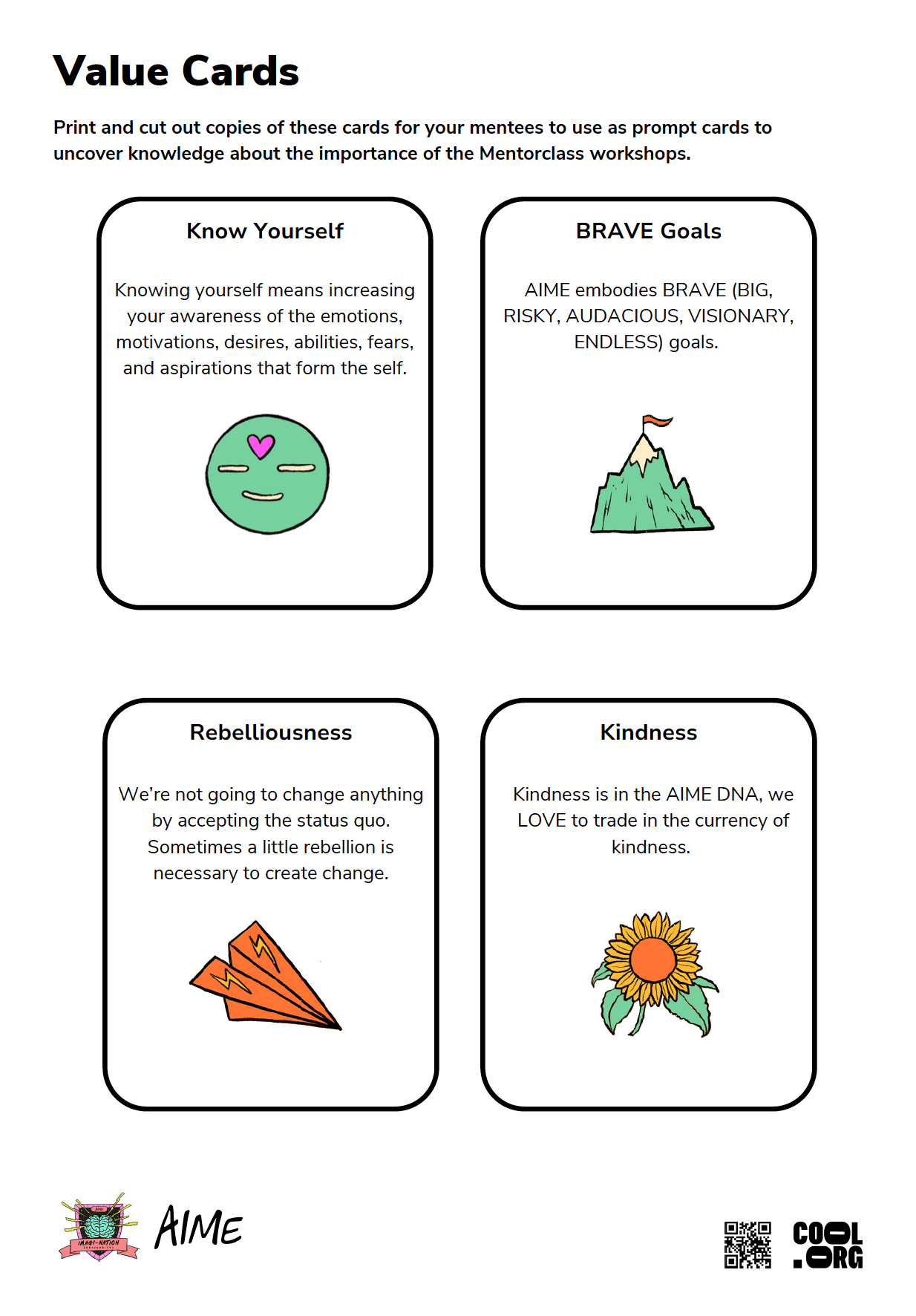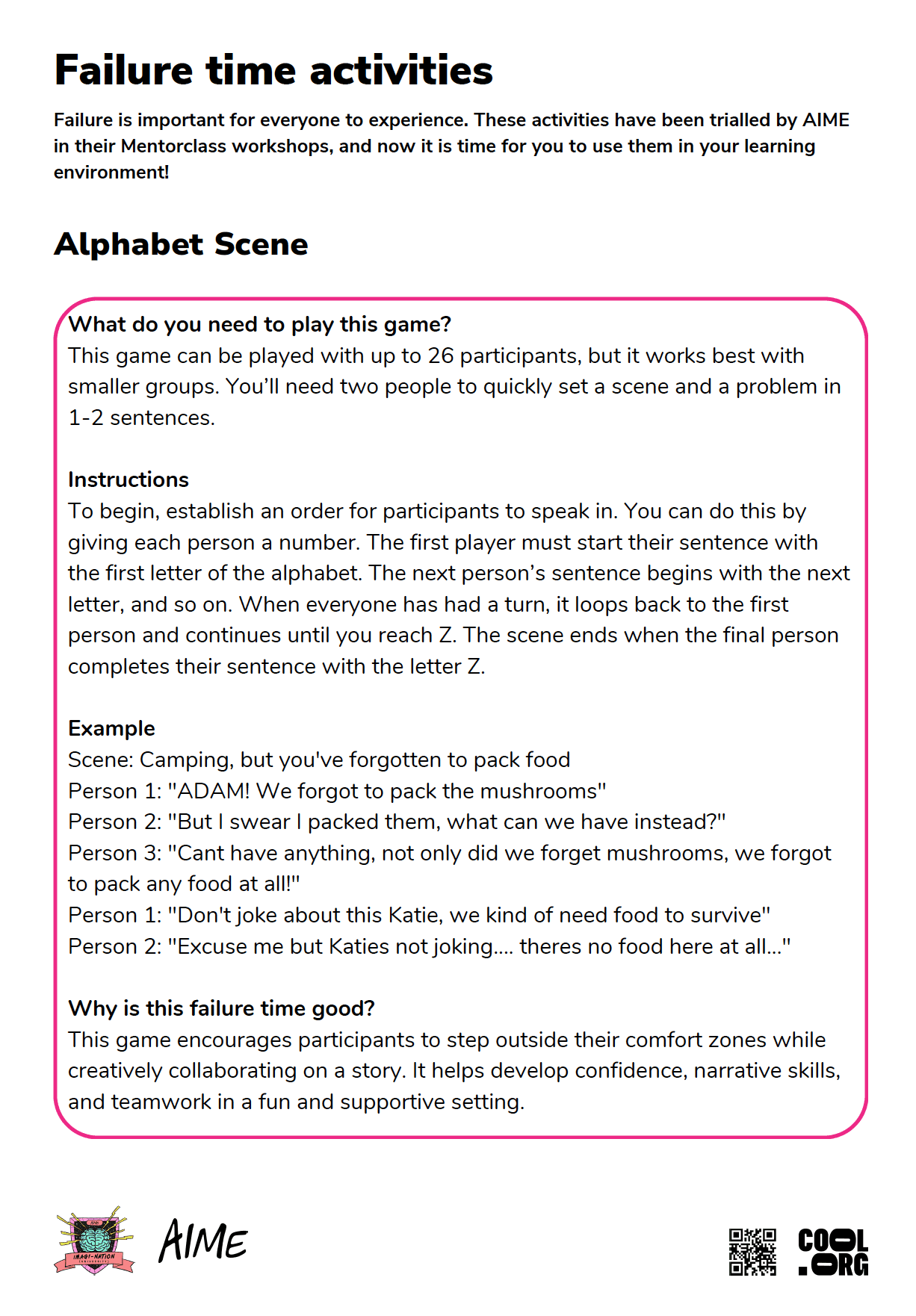Learning intentions:
Students will...
- collaborate with others
- investigate the importance of learning through failing.
Success criteria:
Students can...
- recognise emotional responses of themselves and others by participating in various collaborative activities.
